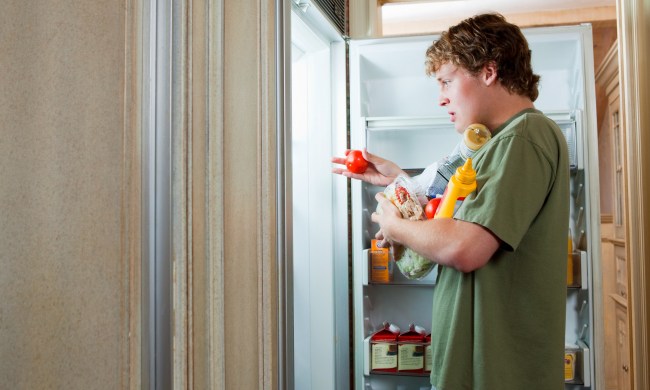How are you to know when the perfect time for your child to progress from bottle to sippy cup is? There are a number of cues to look for in making that transition, but there is more than meets the eye when it comes to those clues. Read ahead to get an idea of when and how to transition your baby from bottles to sippy cups.
Introduce sippy cups early
During solid food feedings, starting at about 6 months, consider providing a sippy cup in addition to a bottle to your baby. Though they probably won’t use it by themselves initially, put the spout to their lips a few times during a feeding to get them used to the sensation. It is suggested that you give both a bottle and sippy cup initially as your wee one will probably not satisfy their thirst with just the sippy cup the first few times, since they aren’t used to it. While presenting sippy cups to your child, try to have them mimic your drinking out of a cup. You might even give them an empty sippy cup to play with so they can become accustomed to holding it. However, don’t introduce a sippy cup into a child’s routine at a stressful time in their life, such as right before a family vacation. Giving a sippy cup to a toddler during calm periods increases the likelihood they will accept it.
Age is a factor in a successful switch

Most pediatricians recommend that you stop using bottles between the ages of 12 and 18 months. Indeed, the American Academy of Pediatrics says that a child should be fully weaned off a bottle by 15 months of age. However, according to a National Health Interview Survey, about 20% of 2- year-olds still use a bottle. The suggested window is a result of the fact that babies around that age are starting to drink fluids besides breast milk or formula, such as cow’s milk and juice. If children drink these sweet beverages through a bottle, they are exposing their teeth to close contact with sugars for more time daily than necessary. Prolonged bottle use is also associated with childhood iron deficiency and obesity. Additionally, the longer your child uses a bottle, the more likely it is that they will become quite attached to it, which will make it even harder to make the transition to sippy cup.
Make it a gradual process
Young children are typically very used to a routine. A disruption from usual activities can be devastating to a toddler, especially when it comes to morning and bedtime routines. For that reason, make the change to sippy cups a gradual one. From the previously mentioned introducing a sippy cup as a toy and providing one alongside a bottle at meals, to discontinuing one bottle feeding at a time, there are many ways to ease your little one into the world of sippy cups. Perhaps first eliminate an afternoon bottle feeding as they might be less reluctant at that time of day. If your child becomes fussy for a bottle, remind them that they can have one at bedtime. Make their nightly bottle feeding the last to go to help them calm down before bed.
Start with silicone sippy cups
After trying a few types of sippy cups, you might notice that your child simply prefers the feel of a bottle’s nipple in their mouth. If this is the case, you could invest in a few sippy cups with silicone spouts. This soft, flexible material feels similar to a bottle’s nipple and is known in parenting circles for being accepted even by those toddlers who are quite attached to their bottles. You can make a series of transitions through different types of sippy cups as you find those that work best for your child. To get a literal feel for the sippy cups you choose to purchase, it is best to browse through a physical store to check out the many options. Nonetheless, it is also fine to resort to reading product reviews to find a sippy cup that will suit your toddler’s desires.

Relegate water to bottles only
If your toddler continues to be hesitant toward regularly using a bottle even after you’ve tried the tips mentioned here, perhaps segregate the types of beverages they get by sippy cup and bottle. The easiest way to do this is by only serving them water (or breast milk, if they are young enough that they still drink it) in bottles, and by placing sweet drinks like cow’s milk or juice in sippy cups. When your child gets bored of water, they will instead turn to the delicious beverage contained in their sippy cup. Eventually, they will probably see bottles as undesirable objects, at which point you can make the switch to using sippy cups for all of their drinks.
Wait if needed
Finally, if all other tricks have failed and your little one still isn’t accepting a sippy cup, maybe they aren’t ready for one yet. Even if you’re frustrated, don’t try to be sneaky by simply getting rid of all of your child’s bottles. This is sure to result in a meltdown. Alternatively, carry on with letting them play with a sippy cup as a toy and perhaps ease up on trying to make them drink from one for a little while. Keep in mind that starting late in the recommended timeframe for weaning a child off of a bottle is no excuse for not gently facilitating their introduction to sippy cups. They might be attached to their bottle and see it similar to a security blanket, so keep trying to make the transition and eventually it will happen!
While your child has fed from a nipple or bottle since they were born, in time they will have to make the switch to a sippy cup. Depending on their temperament, this change might be slow or quite quick. To prevent health issues, it is important that you wean your toddler off a bottle in a timely manner. Sippy cups are the next step towards drinking like a big kid does!


